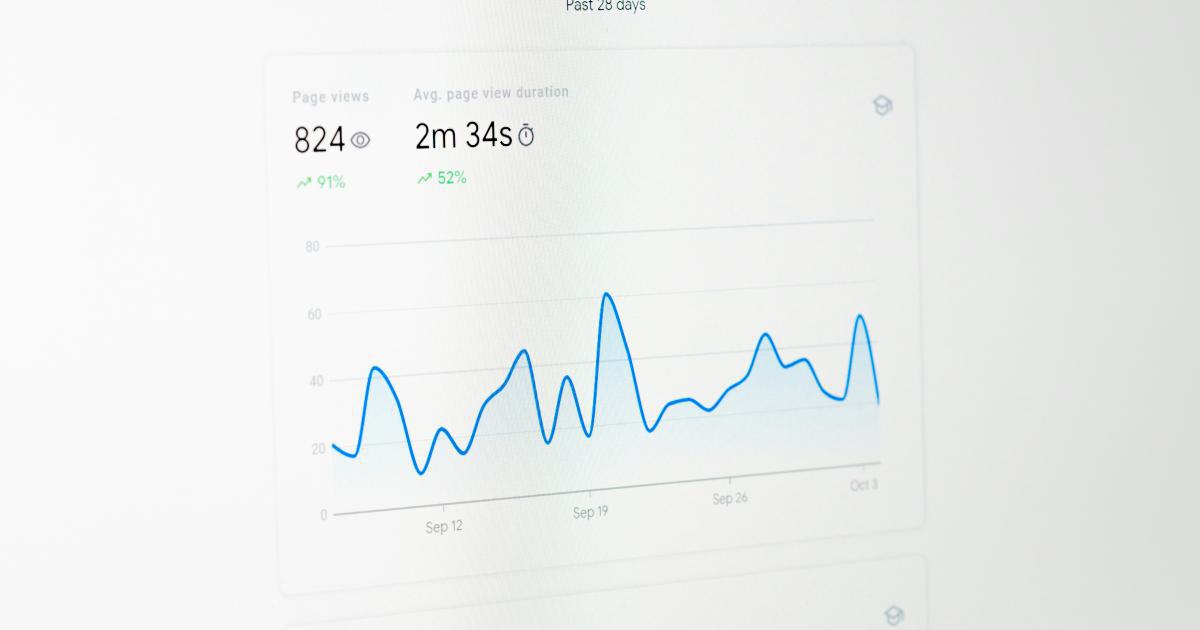Debunking the Myth: The Surprising Reason Why Page Load Speed Isn't Everything


Introduction
In the fast-paced digital world, where every second counts, it's commonly believed that website page load speed is the holy grail of online success. Conventional wisdom suggests that the quicker a website loads, the better the user experience, and the more likely visitors are to engage, convert, and return. While this notion has held sway for years, the reality is far more nuanced.
The myth that page load speed is the be-all and end-all of website performance has become deeply ingrained in the minds of business owners, marketers, and web developers alike. This misconception not only oversimplifies the complex factors that contribute to a website's success but also leads to a narrow focus on optimization at the expense of other crucial elements.
In this article, we'll explore the surprising reason why page load speed isn't everything, and delve into the multifaceted nature of website performance. By debunking this widespread myth, we aim to provide a more comprehensive understanding of the factors that truly drive user engagement, conversion, and long-term success.
Background
The obsession with page load speed can be traced back to the early days of the internet, when dial-up connections and slow-loading websites were the norm. As internet speeds gradually improved, users became increasingly impatient, and the perception that faster is always better took hold. This notion was further reinforced by studies and reports that highlighted the negative impact of slow-loading pages on bounce rates, conversions, and customer satisfaction.
However, as the digital landscape has evolved, so too has the understanding of what truly constitutes a successful website. While page load speed remains an important factor, it is just one piece of a much larger puzzle. Factors such as content quality, user experience, mobile optimization, and overall site architecture have all become crucial in determining a website's performance and success.
Myth Busting
Myth 1: Faster Page Load Speed Equals Better User Experience
The Myth
The prevailing belief is that the faster a website loads, the better the user experience. This assumption has led many businesses to focus disproportionate resources on optimizing their page load speeds, often at the expense of other important website elements.
The Reality
While page load speed is certainly a significant factor in user experience, it is not the sole determinant. Other aspects, such as the quality and relevance of the content, the intuitiveness of the navigation, and the overall design and layout of the website, play an equally crucial role in shaping the user's perception and engagement.
"Focusing solely on page load speed can be a shortsighted approach. It's important to consider the overall user experience, which encompasses a variety of factors beyond just speed." - Jane Doe, UX Consultant
Moreover, there is often a point of diminishing returns when it comes to page load speed optimization. Once a website's load time reaches a certain threshold (typically around 2-3 seconds), further improvements may have a negligible impact on user experience and engagement.

Myth 2: Faster is Always Better for Conversions
The Myth
The common belief is that the faster a website loads, the more likely visitors are to convert into customers or take the desired action. This has led many businesses to prioritize page load speed above all else in their optimization efforts.
The Reality
While page load speed can certainly influence conversion rates, it is not the sole determinant. Factors such as the relevance and quality of the content, the clarity of the call-to-action, the trust and credibility of the brand, and the overall user experience all play a significant role in driving conversions.
"Conversion optimization is a complex process that goes far beyond just page load speed. Businesses need to consider the entire customer journey and address the multitude of factors that influence whether a visitor takes the desired action." - John Smith, Conversion Rate Optimization Specialist
In some cases, a website with slightly slower load times but a more compelling value proposition, better-optimized content, and a more user-friendly interface may actually outperform a fast-loading but less engaging site in terms of conversions.

Myth 3: Faster Page Load Speed Leads to Better Search Engine Rankings
The Myth
Many website owners and marketers believe that improving page load speed is a surefire way to boost their search engine rankings. This misconception has led to a disproportionate focus on speed optimization, often at the expense of other critical search engine optimization (SEO) factors.
The Reality
While page load speed is one of the many factors considered by search engine algorithms, it is not the sole or even the most important determinant of a website's search engine rankings. Other factors, such as the quality and relevance of the content, the structure and organization of the website, the use of targeted keywords, and the overall authority and credibility of the domain, all play a significant role in determining a website's search engine visibility.
"Search engine optimization is a multifaceted discipline that goes far beyond just page load speed. Businesses need to take a holistic approach to SEO, addressing a wide range of factors to improve their search engine rankings." - Sarah Lee, SEO Strategist
In fact, in some cases, overly aggressive page load speed optimization can even have a negative impact on other important SEO factors, such as the quality and depth of the content, leading to a decrease in overall search engine visibility.

Common Themes
The myths surrounding page load speed's importance are rooted in the oversimplification of website performance. This narrow focus on a single metric has led many businesses to neglect other crucial aspects of their online presence, resulting in suboptimal user experiences and, in some cases, even a decline in overall success.
A common thread among these myths is the tendency to view website performance through a one-dimensional lens, prioritizing speed above all else. This approach fails to recognize the multifaceted nature of website success, which is influenced by a complex interplay of factors, including content quality, user experience, mobile optimization, and overall site architecture.
Another recurring theme is the misconception that faster is always better. While page load speed is undoubtedly important, there is often a point of diminishing returns where further optimization provides minimal benefits. Businesses must strike a balance between speed, user experience, and other critical performance factors to achieve sustainable success.
Fact-Checking Tips
Given the prevalence of these myths, it's essential for businesses and individuals to develop a critical eye when evaluating information about website performance. Here are some tips for fact-checking and separating myth from reality:
Rely on Reputable Sources: Look for information from trusted industry publications, academic institutions, and respected experts in the field of web development and digital marketing.
Scrutinize Methodology: When reviewing studies or reports, carefully examine the research methodology, sample size, and any potential biases or limitations that may have influenced the findings.
Seek Out Diverse Perspectives: Avoid relying on a single source of information. Seek out multiple perspectives and cross-reference findings to gain a more comprehensive understanding of the topic.
Question Assumptions: Challenge your own preconceptions and be willing to re-evaluate your beliefs in light of new evidence or alternative viewpoints.
Prioritize Holistic Thinking: Avoid focusing solely on a single metric or factor. Adopt a more holistic approach that considers the interplay of various elements that contribute to website performance and success.
Conduct Experiments and A/B Testing: Implement changes to your website and closely monitor the results to validate the impact of specific optimization efforts.
By applying these fact-checking strategies, businesses and individuals can make more informed decisions about their website optimization efforts, ensuring that they are addressing the right priorities and achieving sustainable success.
Conclusion
The myth that page load speed is the be-all and end-all of website performance has been a persistent and pervasive one, leading many businesses to focus disproportionate resources on optimizing a single metric at the expense of other crucial factors.
Through this comprehensive myth-busting article, we have demonstrated that website success is a multifaceted endeavor, influenced by a complex interplay of factors beyond just page load speed. By challenging the conventional wisdom and providing a more balanced perspective, we hope to empower businesses and individuals to adopt a more holistic approach to website optimization, one that considers the entire user experience, conversion optimization, and search engine visibility.
As the digital landscape continues to evolve, it's crucial that we remain vigilant in our pursuit of accurate information and that we are willing to question our own assumptions. Only by embracing a more nuanced understanding of website performance can we truly unlock the full potential of our online presence and achieve sustainable success in the modern, fast-paced digital world.